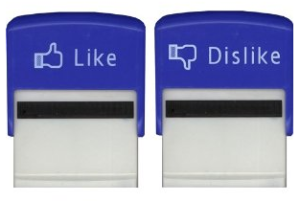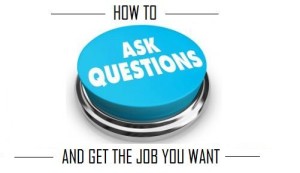 Working in the sports industry is the next best thing to being the athlete playing in front of thousands of people. For many, the desire to work in a sports related field is cultivated in the realization that we are not all talented enough to reach the big stage as an athlete.
Working in the sports industry is the next best thing to being the athlete playing in front of thousands of people. For many, the desire to work in a sports related field is cultivated in the realization that we are not all talented enough to reach the big stage as an athlete.
Fortunately, landing a job in a sports related field is a very achievable goal that can result in a very profitable career. It just so happens to also be in an industry that you love and relate to.
To give yourself the best chance of obtaining the position at the organization in which you are applying at, there are some very important preparatory steps necessary to make a solid impression on the person interviewing you.
- Figuring out as much as you can about the organizations current business challenges, positioning strategies and competitive environment is going to give you an edge before you walk in the door and sit down for the interview.
- Conducting research on these areas should be the first thing you do once you have decided which position and company you have in your sights.
- After you have gained ample knowledge in the necessary areas of study, your focus then needs to be on relating those areas to your particular strengths and experience, then making sure you can demonstrate the relation.
Here are the ” Must-Do’s” for a Sports Job Interview
 Demonstrate
Demonstrate
If you want the interviewer to take you seriously and consider adding you to his or her team, you need to understand that working in sports is about business, not about sports. It is important to enjoy sports, but it is more important to display an interest in and ability to solve business problems. Demonstrating that you have the knowledge about the fields in which the company you are applying for covers is the best way to get that serious consideration. Show that you have the skills needed to carry out the job requirements as well as the ability to contribute and be creative forming new ideas.
 Motivation
Motivation
The ability to convey that you are a highly motivated person is going to be a key factor in the company’s decision to hire you when they sit down to review candidates.
You want to make sure that you explain effectively that you are a person that has a big motor and that you are driven and determined to achieve success specifically at their company. Failing to touch on your motivational attributes could give your chances for the job a death blow.
 Spotlight Your Strengths
Spotlight Your Strengths
First be confident. They called you in for a reason… so stay calm and show them why they should hire you. Make sure to emphasis and bring attention to each strength you posses and show the relation of those strengths to the role and organization you are applying for. Also be prepared to discuss mistakes you have made and explain how you solved them. The interviewer will be more concerned about how you rectified the problem than the problem itself.
 Know What You Like and What You Don’t Like
Know What You Like and What You Don’t Like
It is easy to forget when you’re in the job market, and the pressures of finding a lucrative position start to outweigh your ability to be selective, that you want to be aware of taking a job when the duties you will be performing could prove unsavory to you. It is a common pitfall that could result in early separation of employment. Be sure to state and understand the things you don’t like doing or are not so good at. There is nothing wrong with knowing what you like and dislike. Be able to demonstrate what you have enjoyed in previous roles and why you enjoyed them.
 Ask Questions
Ask Questions
When the opportunity arises for you to ask questions, do so. This will show that you have critical thinking ability and that you are able to negotiate a potential offer down the road. Questions you could ask but are not limited to would be:
- Is this a new role?
- Why has this position become available?
- What is the career progression of this position?
Decide before hand some possible questions you would like to ask and ask them. Be careful not to discuss salary in depth in the first interview but indicate where your expectations are in general.
 Dress Like You Already Have the Job
Dress Like You Already Have the Job
With thousands of jobs in the sports field, proper attire depends on the career path you are taking. Whatever you wear for whatever prospective position, you will want to impress, so always go a step beyond what you assume you will be wearing daily for the job.
Avoid black and any flashy colors. Neutral colors are always best and sticking to a more conservative dress is highly advisable.
 Follow Up
Follow Up
Make it a priority that you follow up on any conversation or meeting you have with a note- email or hand written and keep your contacts up to date on your progress continually.
Now you have the basic blueprint of what you need to do when your going for that dream job in a sports related field. Make the necessary preparations and go grab that job.
Comment below on other tips you have for a successful sports job interview. Also include which ones lister here you thought were most successful. Make sure to like us social media via our Facebook page and Twitter @SportsNetworker



Thanks for the blueprint.
Great article, thanks! So you said to avoid black and flashy colors but stick to neutral colors. What color suit would you suggest then navy or gray? Also, what would you suggest when you are at a networking event even if you are not technically in an actual interview but are in a more social laid-back setting?
Thank you Marie and Kiki! I think Navy and Gray both are good colors. When you are at a networking event go with the same professionalism as an interview. It could turn into an interview before you know it, so you want to make a good first impression.
It’s unrealistic to call the sports industry “profitable.” And I hate to be a heartbreaker, but calling getting a job in the sports industry “highly achievable” is also unrealistic.
I work for a VERY popular major league team, and my colleague that’s 6 years out of an ivy (with an MBA to boot) is still making $25,000. The average job posting at my company gets 300+ applicants (my job had 600+), which is how they can get people to work for peanuts.
The steps you provided are great, and they are certainly “must-dos” for getting a job in sports. However, one should realize even following those steps, really achieving success in this industry is very much going to be an uphill climb. Being able to afford to continue to work in the industry is going to be an even bigger challenge. I can honestly not name a single co-worker I have in their 20s that hasn’t had to have their parents bail them out financially at least once in the last year.
Everyone needs to experience it for themselves, but please understand that breaking into the sports industry is HARD and you probably will NOT be able to make a lucrative career out of it. If you want money, go elsewhere. If you want a social life outside your job, DEFINITELY go elsewhere. If you are one of the crazies that is willing to work to what could literally amount to $3.60 per hour (this is not an exaggeration, that’s actually how much I made per hour BEFORE taxes in my first full time job in sports), then go for it! But if you think you can be happy doing something else; honestly, you should go do it (I can’t see myself being happy doing anything else, which is why I suffer).
Matthew, your article is well-written and you give a lot of great advice, but from my perspective it’s just a little naive.
I agree with ‘close but…’ – I worked for a national federation for five years, and an Olympic Organising Committee for 3 years… Sure, it was the most rewarding and motivated time of my life. But I worked more hours than I ever will again, and my social life, and even sleep some nights, was all at work. It was worth it, but now I love a real wage outside of sport, and I volunteer in community media and social media to get my sports kicks – I’m earning much more, with less work, and just as much access to sports that I love. S in Australia
@ close but & SG
Thank you for your insights on my article. I believe you pointed out some realistic facts about the sports industry. The goal was to give people an understanding of what to do specifically in a job interview. Which should be easier to do than land a job as a pro athlete. However, after you get the job what you do with it is up to you. That is a story for another day. Great comments.
Thanks for sharing your thoughts about drum grooves.
Regards